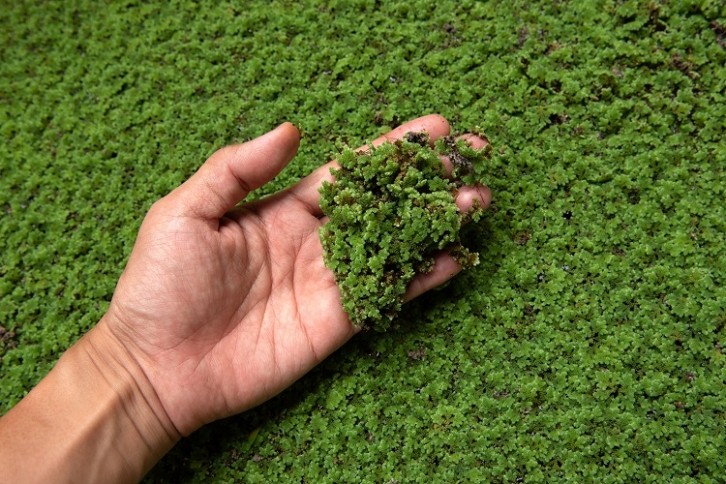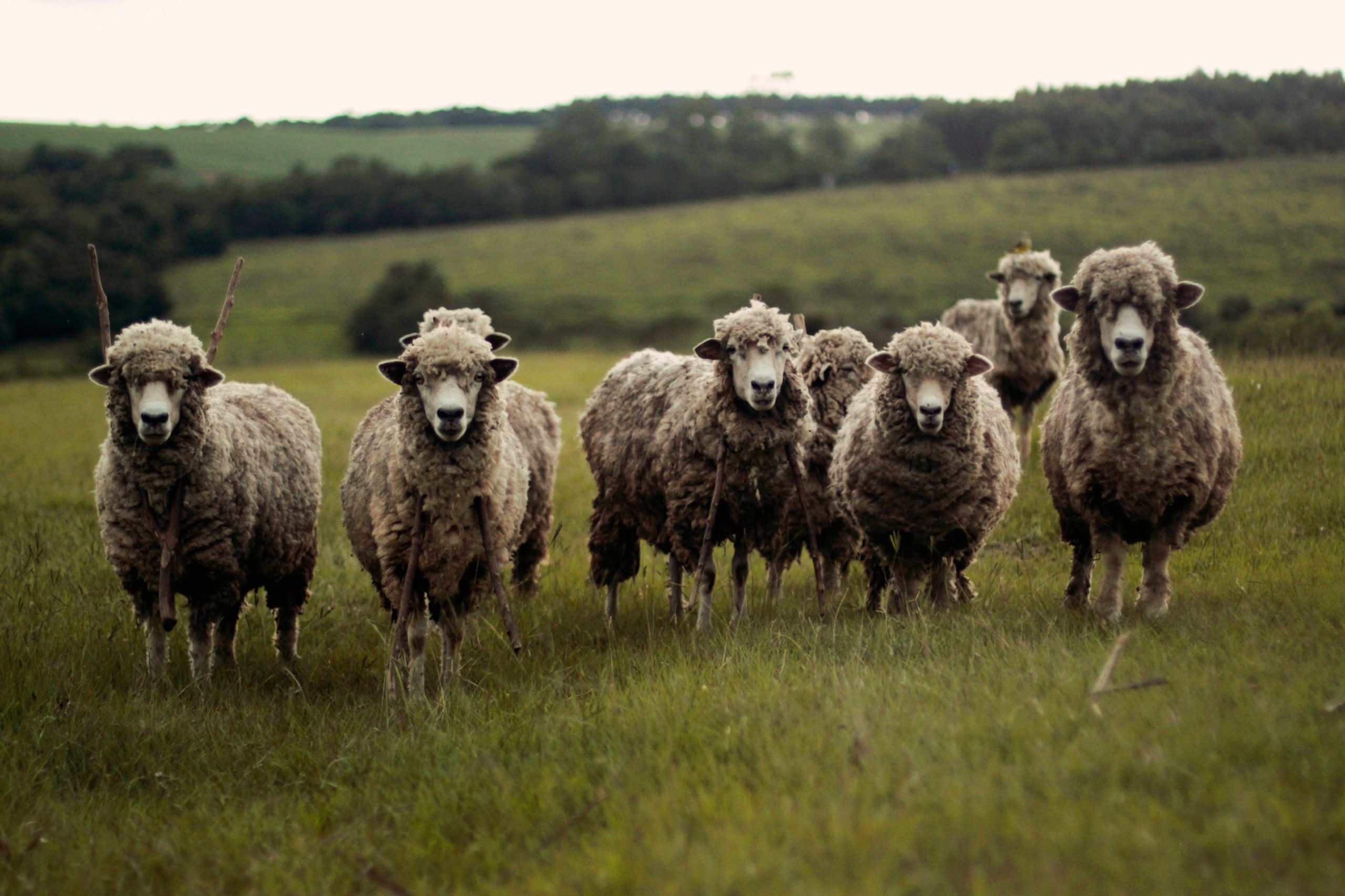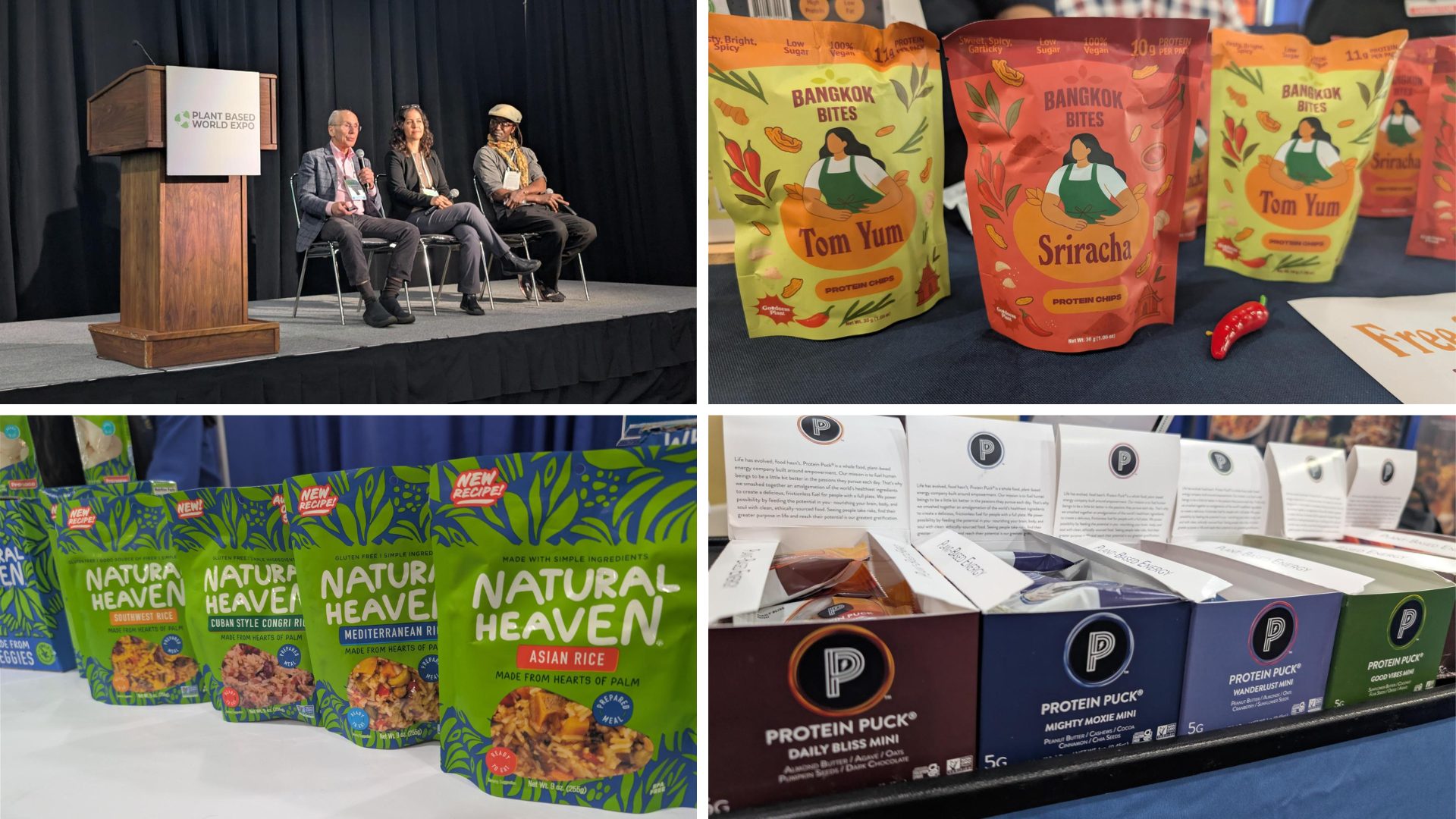In an era where farmers across the world are navigating challenges driven by climate change and economic instability, ensuring food security for a growing population has become a pressing concern. Water resources are dwindling in many regions due to overuse and inefficient irrigation practices, which has increased interest and investment in soilless farming techniques.
Plantible Foods, a startup that leverages a vertically integrated aquaculture system to cultivate duckweed, recently raised $30 million in a Series B funding round co-led by Piva Capital and Siddhi Capital to scale up production at its 140-acre farm in Texas. Also known as lemna, duckweed is a fast-growing aquatic plant that’s been gaining traction as a sustainable protein source within the last decade.
“Compared to land-based crops, duckweed uses 90% less water per kilogram of protein produced and minimal land area, contributing to reduced deforestation pressure,” said Zachary Cartwright, PhD, lead food scientist at AQUALAB.
Cartwright told The Food Institute that duckweed also has a low carbon footprint, as it “captures CO₂ during growth and requires fewer emissions to produce.”
And its benefits go beyond sustainability.
Nutrition
Plantible was the first company to discover the natural enzyme RuBisCO, or Rubi Protein, which it extracts from duckweed to develop products like Rubi Whisk, a plant-based egg substitute that can “outperform eggs in many applications,” according to its co-founders.
“Duckweed contains all nine essential amino acids so it is a high-quality protein source comparable to animal-based sources like eggs or dairy,” said Catherine Gervacio, a registered nutritionist-dietitian at WOWMD.
This makes it a “complete protein,” which is “a significant fact as most plant sources of protein do not fall into this ‘complete’ category and must be paired with other plant proteins to reach a combination that contains all nine essential amino acids,” added Trista Best, a registered dietitian at The Candida Diet.
“It is also rich in vitamins like A and B12, and minerals like iron, zinc, and calcium, which are often harder to obtain on plant-based diets,” Gervacio told FI.
It makes sense that duckweed has earned the nickname “water lentils” given that it packs up to seven times as much protein as soy. It’s also high in omega-3 fatty acids, which are often obtained from fish oil, addressing another nutritional challenge for the plant-based community.
And the low cost of duckweed production only further increases its appeal.
Affordability
Because duckweed doubles in mass every 48 hours on average, it’s substantially more cost-effective to cultivate than many of its plant-based, protein-rich competitors.
And like commercially grown algae, it can be harvested year-round in open ponds.
“Duckweed can thrive in non-arable lands and requires minimal freshwater, fertilizers, or pesticides. It can also be grown in wastewater, contributing to cost savings while cleaning the water as it absorbs nutrients,” Cartwright told FI.
“Its small size and dense cultivation reduce space and infrastructure needs. This lowers overhead costs, making it economically viable even in smaller-scale operations.”
Applications
In addition to protein powders and egg substitutes used in functional foods, Cartwright shared that duckweed is also being incorporated into plant-based seafood alternatives along with other plant proteins to “replicate the texture and taste of fish,” adding that companies are also fermenting duckweed to “improve its digestibility and flavor.”
Cartwright predicts future duckweed research will likely focus on “scaling production and enhancing its nutritional properties, positioning it as a mainstream, eco-friendly ingredient.”
The Food Institute Podcast
Is it possible to balance a legacy brand and innovative ideas for a food company? Bibie Wu, chief communications and technical development officer with Del Monte, shares how her company respects its past while looking to the future, and how her dual roles in marketing and product development inform each other and improve the company.












